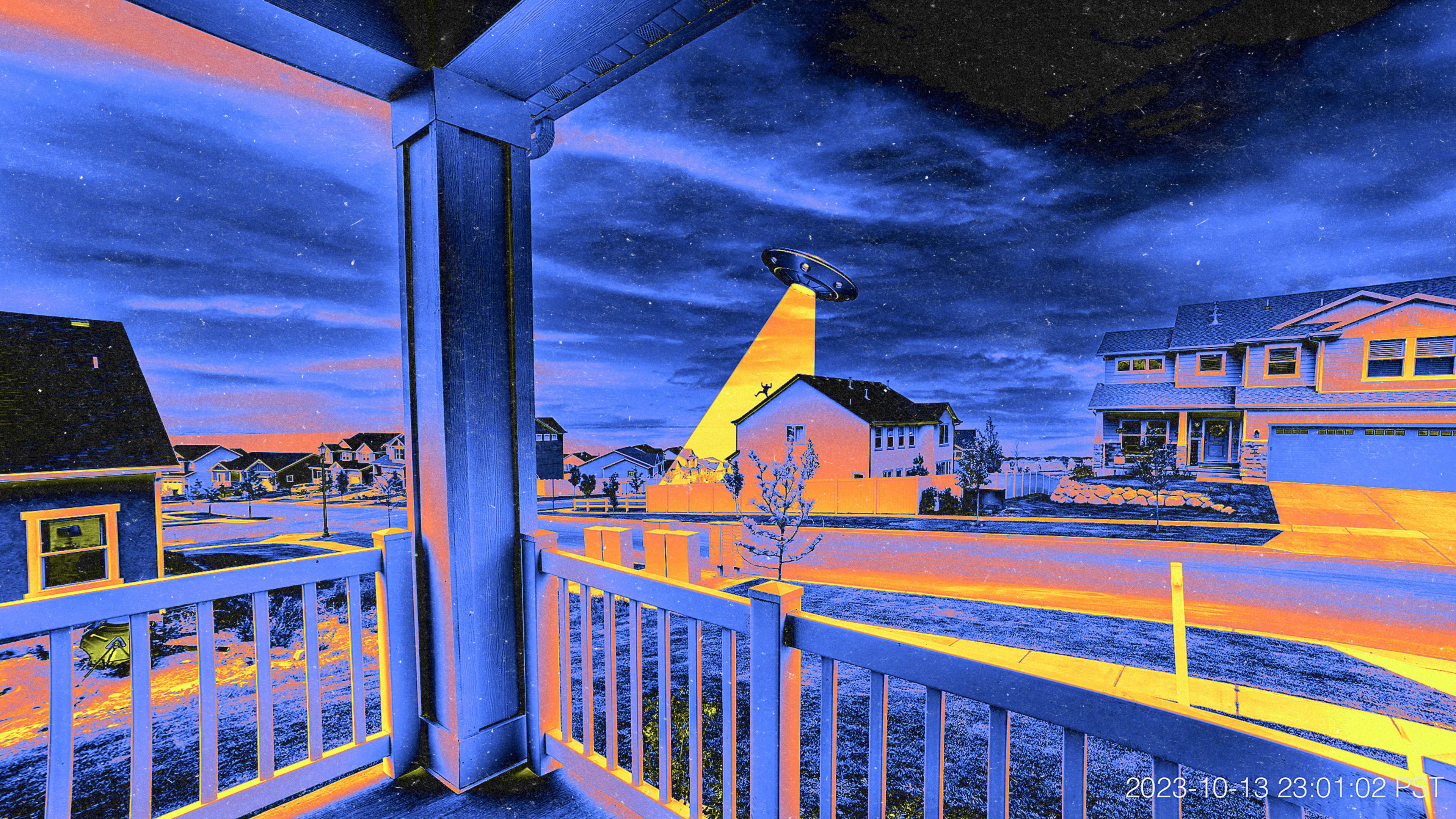Branded is a weekly column devoted to the intersection of marketing, business, design, and culture.
Amazon’s Ring line of “smart” video doorbells and security devices has long sparked culture-wide conversation—much of it unflattering, and some outright alarming. For instance, as Fast Company has previously explored, the brand has been a target of critics on privacy issues, and watchdog groups have argued it has fostered a problematic relationship between citizen surveillance and law enforcement.
But lately, the brand has come calling with a different zeitgeist-y topic: aliens.
Specifically, it recently launched “Ring’s Million Dollar Search for Extraterrestrials.” This jokey promotional contest promises $1 million to “a U.S. resident who captures unaltered scientific evidence of a real extraterrestrial life form on their indoor or outdoor Ring device,” the company says. “Whether it’s a video of an extraterrestrial walking (or flying?) up your driveway and asking for directions or an unidentifiable life form exhibiting unusual and extraordinary behavior in your backyard.”
Obviously, the point of this cute stunt is to win the Ring a lot of free, good-humored publicity. And after all, aliens and unidentified flying objects have been a staple of pop culture (and to some extent, advertising) for decades. But lately, extraterrestrials have been having a moment—UFOs, rebranded as “unexplained anomalous phenomena” (UAPs), have become the stuff of mainstream media reports, U.S. congressional hearings, and presidential debates. The surprise appearance of mummified “alien” remains (swiftly debunked) before Mexico’s Congress was one of the year’s weirdest buzz-generators. Perhaps paranoia is peaking—or maybe in a time of dark conspiracy theories, rampant disinformation, and complete disconnects over truth itself, the possibility of alien visitors seems relatively benign.
For Ring, the topic is clearly just a fun diversion that positions the brand as harmless and friendly. This is in line with its launch last year of a syndicated Funniest Home Videos-style show called Ring Nation, hosted by Wanda Sykes and built around amusing viewer-submitted Ring clips. (Season 1 is archived on Prime Video; no word on a second season.) The goal of that enterprise, as The Verge put it, seemed to be “to make the surveillance state fun.” And like that exercise, the Ring alien contest seems like another case of cutewashing—replacing concerns about the democratization of the surveillance state with lulz.
And this latest effort comes at an interesting time for Ring parent Amazon, which was recently sued by the Federal Trade Commission (FTC) and 17 states who have accused it of exercising monopoly-like power. The company appears to have decided it won’t be responding to that by curbing its ambitions. Amazon’s heavily advertised October Prime Big Deal Days promotions were in full swing this week and seem to have been accepted as a wholly invented new shopping event. It recently announced a new pricing strategy for Prime Video that will cost users more to avoid ads. The Wall Street Journal reports that the company is experimenting with more persistent “Buy Again” options to boost orders. And on the no-joke extraterrestrial front, Amazon is starting to launch satellites in an effort to build a potential rival to SpaceX’s Starlink. That’s not to say that Ring’s contest was designed to divert public attention away from Amazon’s ongoing expansion in the face of government concern—but it doesn’t hurt.
And barring an alien invasion, that $1 million seems pretty secure. But in a clever twist that makes the stunt much more accessible (and potentially spreadable), Ring has what amounts to a Halloween tie-in that seems designed to generate amusing viral videos. Turns out there’s a secondary prize if “you don’t locate any real extraterrestrials,” the announcement explains. “To enter, simply capture and submit your most creative interpretation of an extraterrestrial sighting on your Ring device.” These videos “will be judged based on creativity, humor, engagement with a Ring device,” and other factors. “Alien costumes and accessories, homemade spacecrafts, and Extraterrestrial-inspired communication with your Ring device are highly encouraged.” The announcement even gives some tips on creative strategies involving Amazon’s Alexa, Echo, and Fire TV, as well as the full suite of Ring products. The deadline is November 3, and the prize is . . . a $500 Amazon gift card.
The basic premise of a fake alien video practically begs for deepfake responses, but presumably those would be disqualified. Still, the possibilities are interesting, and it’s not hard to imagine the brand event generating potentially viral responses, which of course is the real goal. Imagine, for example, if someone’s Ring captures an “alien” stealing an Amazon package.
Recognize your brand’s excellence by applying to this year’s Brands That Matter Awards before the extended deadline, June 14.
Sign up for Brands That Matter notifications here.
